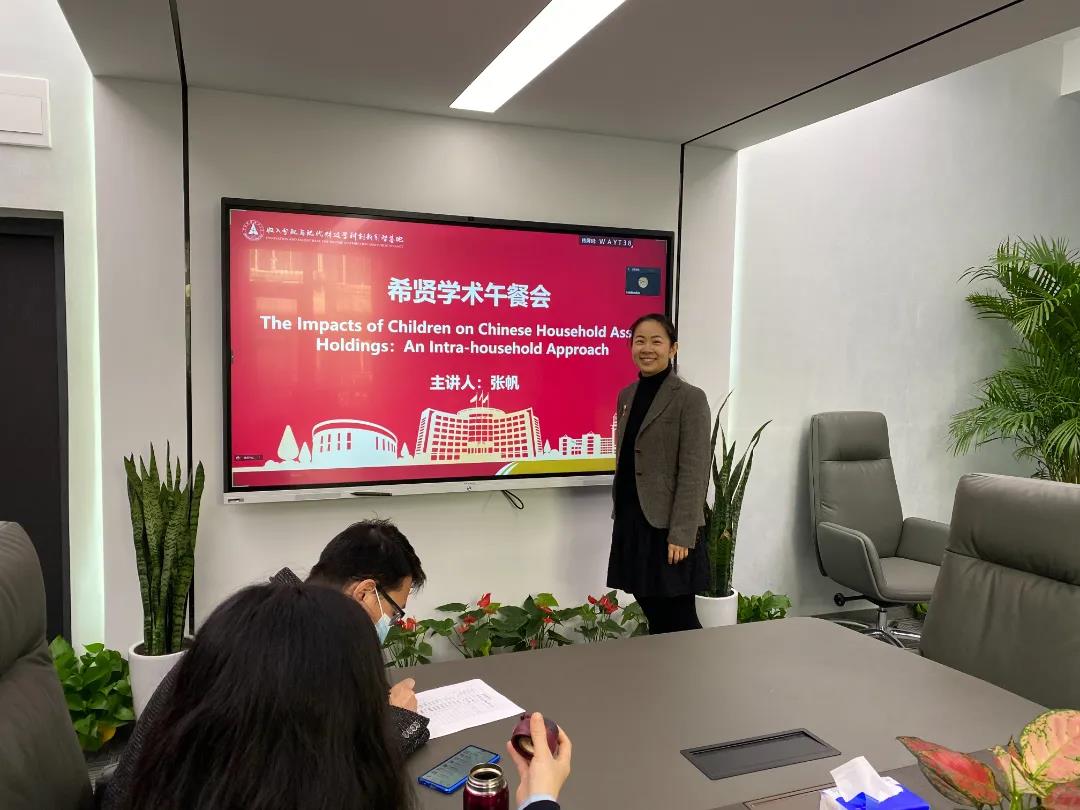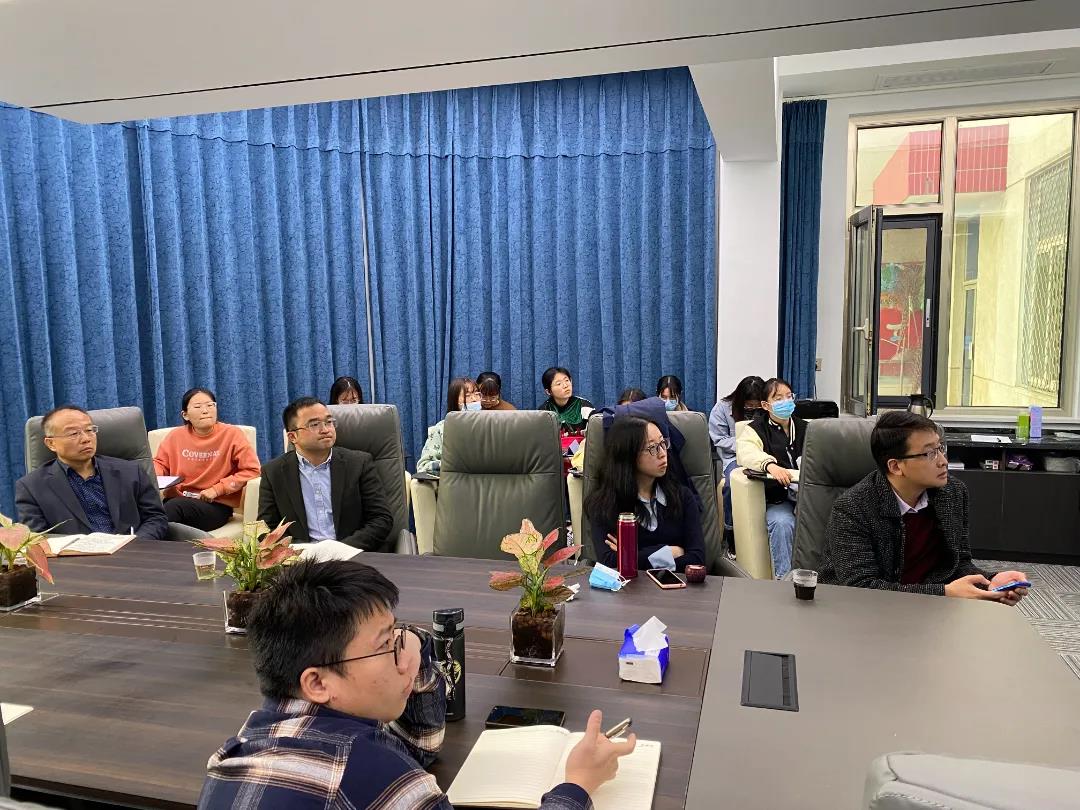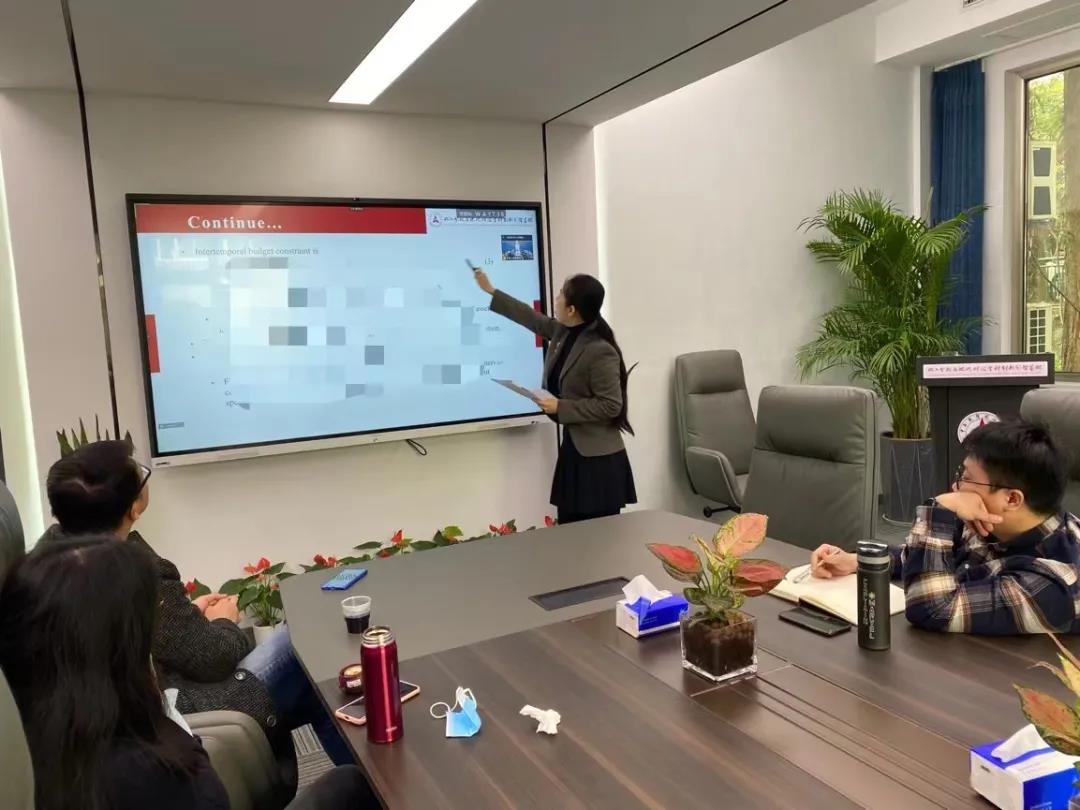The 7th Xi Xian Academic Luncheon, co-organised by IIDPF and the School of Public Finance and Taxation, was successfully held on 18 November 2021 in Conference Room 119, Wenqin Building. Dr. Zhang Fan, IIDPF Research Fellow, was the guest speaker of this academic luncheon and gave a talk entitled "The Impacts of Children on Chinese Household Asset Holdings: An Intra-household Approach ". The forum was chaired by researcher Dr. Wan Qian. More than 40 students and faculty members, including IIDPF Deputy Director Professor Sun Qunli, Executive Deputy Director Professor Lu Yuanping, Professor Wu Lei from the School of Public Finance and Taxation, Associate Professor Ma Yuanyuan from the Wenlan School of Business, attended the academic luncheon.

  The Nobel Prize-winning economist Becker considers that parents' investment in their children's education stems from 'altruism' and that investment in family education is a direct cause of children's educational attainment. However, for a family, family resources are limited and cannot all be allocated to the education of their children. In this context, Dr. Zhang Fan conducted an intra-household analysis of Chinese households based on the "altruism" effect, using data from the 2010-2014 Peking University Survey of Chinese Residents to examine the impact of children on the asset allocation of Chinese households, with a focus on whether there is any inequality in parents' decisions on household asset investment due to their children's The study focuses on whether there are inequalities in parents' decisions on household asset allocation due to gender differences. The empirical study found that there are gender differences in the distribution of different types of household assets, and that the traditional Chinese system of male-biased asset beneficiaries has an impact on the intergenerational transfer of household assets and wealth. Further analysis found that families with sons, influenced by traditional beliefs, have parents who choose to put their assets into safer and more durable types of investments, such as buying a second home; families with daughters have parents who adopt higher-risk, short-term target investments. In recent years, the gender bias in household investment allocation has gradually decreased in urban China as women's relative bargaining power has increased.


  During the communication session, students and faculty discussed and exchanged ideas about data classification and the study of children's age phasing. Dr. Zhang's research adds to the theoretical basis of the impact of gender differences in children's asset allocation in economics and helps to better understand the reasons for gender differences in Chinese parents' investment in their children's education from an 'altruistic' perspective.

